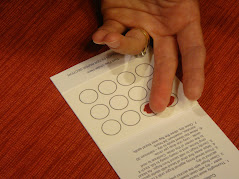The battle over progesterone
I was talking with a hospital nurse recently who told me about her lack of energy, blue moods, and other assorted complaints. At age 49, she was exasperated. So I suggested that she ask her gynecologist about progesterone cream.
The gynecologist advised her, "You don't have a uterus. You don't need progesterone." He went on to explain that the only reason to take progesterone was to prevent uterine cancer caused by estrogen.
What about progesterone's weight loss benefits? It's effects on increased energy, improved mood, deeper sleep? These benefits, of course, have nothing to do with the uterus.
I've witnessed these benefits in women many times, both in the peri-menopausal period (which starts around your late 30's) and menopause.
I tracked down vocal progesterone advocate, Dr. Nisha Jackson. Dr. Jackson is a proponent of “bio-identical” hormone replacement, replacement of estrogen, progesterone, and other human hormones using natural human forms of replacement.
Dr. Jackson has several books available, including "The Hormone Survival Guide to Perimenopause."
I asked Dr. Jackson for her thoughts on several questions:
Q: What are the advantages of bio-identical hormone replacement as compared to synthetic hormones?
Dr. Jackson: If you have been prescribed drugs containing synthetic hormones, even if you use the medications as directed, chances are the results haven't been what you had hoped. Your hot flashes may be gone, your periods may return to regularity, but you’re also likely to experience a spectrum of negative side effects, including irregular bleeding, bloating, sore breasts—and weight gain.
Like millions of American women, you have been prescribed powerful hormone medications by healthcare practitioners who have no way of knowing your hormone levels! You are getting a one-size-fits-all treatment that does not address the list of maladies that can accompany hormonal imbalances.
This long list includes depression, weight gain, exhaustion, acne, insomnia, facial hair, food cravings, fuzzy thinking, bloating, joint pain, and loss of sex drive. Although some peri-menopausal women tolerate synthetic hormones, others experience mild to severe side effects that can be more annoying or debilitating than the symptoms they are meant to relieve.
Instead, if your provider ordered a complete hormone panel, it will often reveal that a woman's hormone levels are either low or out of balance. Knowing a woman's estrogen, progesterone, testosterone, DHEA (dehydroepiandrosterone), and thyroid levels would not only allow for a customized treatment plan to relieve symptoms, but also provide a baseline to observe changes as she moves through peri-menopause to menopause. Testing allows an accurate prescription for safe, quick relief of symptoms. Without testing it's a guessing game at the patient's expense.
Q: What is the basic blood panel you recommend at the start of a hormonal assessment?
Dr. Jackson: The basic blood levels that we recommend for women considering hormone replacement are: estrodiol, estriol, estrone (fractionated estrogen levels); progesterone; free testosterone; DHEA-S; TSH, free T4, and free T3 (thyroid hormones). These should be obtained in the last half of your menstrual cycle, or about 18–21 days after the first day of your period. For women without menses, these levels can be drawn any time.
Q: Why aren’t bio-identical hormones used more frequently? Shouldn’t they be the standard of practice for hormone replacement?
Dr. Jackson: The reasons why hormone testing and prescribing natural hormones are not standard of care has more to do with patent law and the pharmaceutical industry than anything else. There is also the fact that most medical schools have, until recently, ignored natural hormones as an option for treating women's hormonal imbalances. We therefore have a medical establishment out of tune with bio-identical hormone replacement.
But let's go back to the drug companies. Natural hormones cannot be patented and marketed as exclusive products. Even though safe, bio-identical natural progesterone and estrogen are readily available, pharmaceutical companies rarely use them. Instead they use lab-formulated synthetic progestins and estrogens to make their hormone-replacement therapies. These preparations are patentable and profits can therefore be protected. (Ironically, the recent discrediting of synthetic hormones is beginning to propel the drug companies in the direction of using bio-identical hormones).
Personally, having witnessed many women who have been transformed with using natural human progesterone, I have become totally convinced that it is a huge boon to health for women, far greater than estrogen.
The gynecologist advised her, "You don't have a uterus. You don't need progesterone." He went on to explain that the only reason to take progesterone was to prevent uterine cancer caused by estrogen.
What about progesterone's weight loss benefits? It's effects on increased energy, improved mood, deeper sleep? These benefits, of course, have nothing to do with the uterus.
I've witnessed these benefits in women many times, both in the peri-menopausal period (which starts around your late 30's) and menopause.
I tracked down vocal progesterone advocate, Dr. Nisha Jackson. Dr. Jackson is a proponent of “bio-identical” hormone replacement, replacement of estrogen, progesterone, and other human hormones using natural human forms of replacement.
Dr. Jackson has several books available, including "The Hormone Survival Guide to Perimenopause."
I asked Dr. Jackson for her thoughts on several questions:
Q: What are the advantages of bio-identical hormone replacement as compared to synthetic hormones?
Dr. Jackson: If you have been prescribed drugs containing synthetic hormones, even if you use the medications as directed, chances are the results haven't been what you had hoped. Your hot flashes may be gone, your periods may return to regularity, but you’re also likely to experience a spectrum of negative side effects, including irregular bleeding, bloating, sore breasts—and weight gain.
Like millions of American women, you have been prescribed powerful hormone medications by healthcare practitioners who have no way of knowing your hormone levels! You are getting a one-size-fits-all treatment that does not address the list of maladies that can accompany hormonal imbalances.
This long list includes depression, weight gain, exhaustion, acne, insomnia, facial hair, food cravings, fuzzy thinking, bloating, joint pain, and loss of sex drive. Although some peri-menopausal women tolerate synthetic hormones, others experience mild to severe side effects that can be more annoying or debilitating than the symptoms they are meant to relieve.
Instead, if your provider ordered a complete hormone panel, it will often reveal that a woman's hormone levels are either low or out of balance. Knowing a woman's estrogen, progesterone, testosterone, DHEA (dehydroepiandrosterone), and thyroid levels would not only allow for a customized treatment plan to relieve symptoms, but also provide a baseline to observe changes as she moves through peri-menopause to menopause. Testing allows an accurate prescription for safe, quick relief of symptoms. Without testing it's a guessing game at the patient's expense.
Q: What is the basic blood panel you recommend at the start of a hormonal assessment?
Dr. Jackson: The basic blood levels that we recommend for women considering hormone replacement are: estrodiol, estriol, estrone (fractionated estrogen levels); progesterone; free testosterone; DHEA-S; TSH, free T4, and free T3 (thyroid hormones). These should be obtained in the last half of your menstrual cycle, or about 18–21 days after the first day of your period. For women without menses, these levels can be drawn any time.
Q: Why aren’t bio-identical hormones used more frequently? Shouldn’t they be the standard of practice for hormone replacement?
Dr. Jackson: The reasons why hormone testing and prescribing natural hormones are not standard of care has more to do with patent law and the pharmaceutical industry than anything else. There is also the fact that most medical schools have, until recently, ignored natural hormones as an option for treating women's hormonal imbalances. We therefore have a medical establishment out of tune with bio-identical hormone replacement.
But let's go back to the drug companies. Natural hormones cannot be patented and marketed as exclusive products. Even though safe, bio-identical natural progesterone and estrogen are readily available, pharmaceutical companies rarely use them. Instead they use lab-formulated synthetic progestins and estrogens to make their hormone-replacement therapies. These preparations are patentable and profits can therefore be protected. (Ironically, the recent discrediting of synthetic hormones is beginning to propel the drug companies in the direction of using bio-identical hormones).
Personally, having witnessed many women who have been transformed with using natural human progesterone, I have become totally convinced that it is a huge boon to health for women, far greater than estrogen.




0 comments:
Post a Comment